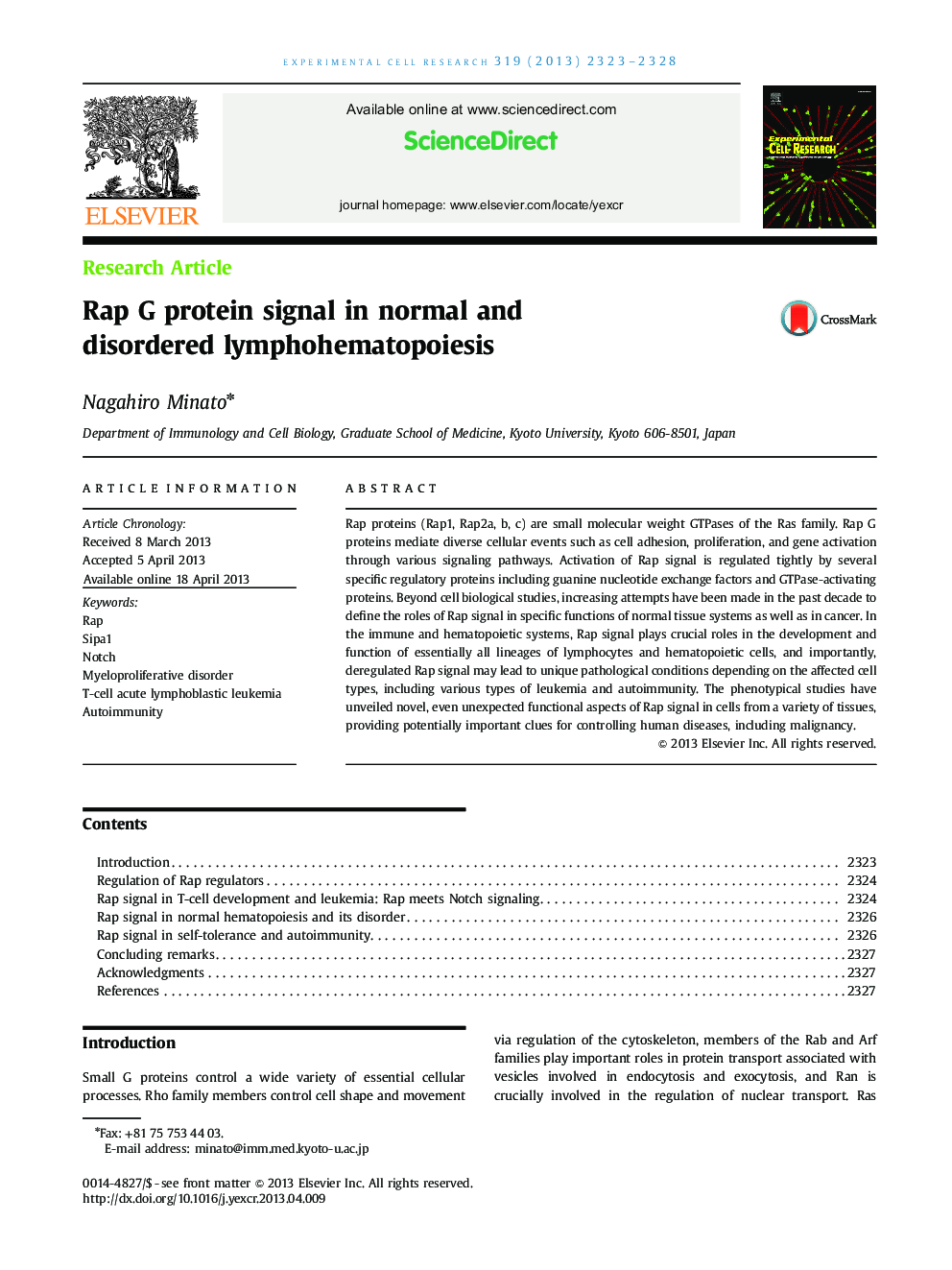| Article ID | Journal | Published Year | Pages | File Type |
|---|---|---|---|---|
| 2130404 | Experimental Cell Research | 2013 | 6 Pages |
Rap proteins (Rap1, Rap2a, b, c) are small molecular weight GTPases of the Ras family. Rap G proteins mediate diverse cellular events such as cell adhesion, proliferation, and gene activation through various signaling pathways. Activation of Rap signal is regulated tightly by several specific regulatory proteins including guanine nucleotide exchange factors and GTPase-activating proteins. Beyond cell biological studies, increasing attempts have been made in the past decade to define the roles of Rap signal in specific functions of normal tissue systems as well as in cancer. In the immune and hematopoietic systems, Rap signal plays crucial roles in the development and function of essentially all lineages of lymphocytes and hematopoietic cells, and importantly, deregulated Rap signal may lead to unique pathological conditions depending on the affected cell types, including various types of leukemia and autoimmunity. The phenotypical studies have unveiled novel, even unexpected functional aspects of Rap signal in cells from a variety of tissues, providing potentially important clues for controlling human diseases, including malignancy.
